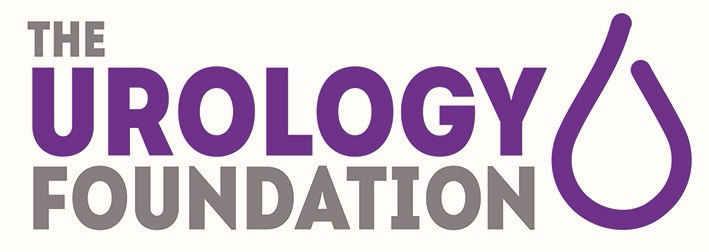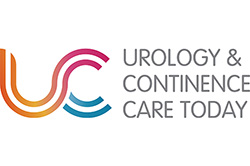
Serena Wyman, events manager, The Urology Foundation

World Continence Week (WCW), taking place from 21–27 June, is an annual health campaign run by the World Federation for Incontinence and Pelvic Problems (WFIPP). The campaign highlights the impact that urinary incontinence can have on people’s lives and encourages sufferers to seek help to improve their quality of life.
It is no surprise that we at The Urology Foundation (TUF), a medical charity dedicated to improving the nation’s urological health across all urological conditions, actively promote WCW and offer a range of support resources on our website.
TUF was established 26 years ago with a mission to transform the lives of people with urological conditions through ground-breaking research and training. Over the years, we are proud to have supported a range of research projects in the area of urinary incontinence. The following are just a few examples.
In the early 2000s, a team in Switzerland began to test the use of botulinum toxin (Botox), as a treatment for patients who had over active bladder (OAB) because of neurological conditions, such as spinal cord injury or multiple sclerosis (MS). In 2005, TUF funded research into using Botox to treat patients with OAB who had no associated neurological condition. This became the world’s first level 1 double blind placebo controlled trial of Botox as a treatment for idiopathic OAB, and showed the effect it had in patients whose bladders were overactive during the filling or storing phase being able to hold more urine, and urgency-related incontinence either improved or resolved completely. Botox now appears as standard of care in all international guidelines in managing refractory OAB.
There has been much discussion in both the medical profession and media over the last few years about the use of mesh slings as a treatment for incontinence and the subsequent pain and pelvic floor issues, culminating in the recent 2021 Pelvic Floor Society document (www. pelvicfloorreport.com). This is an area in which TUF has been supporting research for a number of years.
It is no surprise that we at The Urology Foundation (TUF), a medical charity dedicated to improving the nation’s urological health across all urological conditions, actively promote WCW and offer a range of support resources on our website.
TUF was established 26 years ago with a mission to transform the lives of people with urological conditions through ground-breaking research and training. Over the years, we are proud to have supported a range of research projects in the area of urinary incontinence. The following are just a few examples.
In the early 2000s, a team in Switzerland began to test the use of botulinum toxin (Botox), as a treatment for patients who had over active bladder (OAB) because of neurological conditions, such as spinal cord injury or multiple sclerosis (MS). In 2005, TUF funded research into using Botox to treat patients with OAB who had no associated neurological condition. This became the world’s first level 1 double blind placebo controlled trial of Botox as a treatment for idiopathic OAB, and showed the effect it had in patients whose bladders were overactive during the filling or storing phase being able to hold more urine, and urgency-related incontinence either improved or resolved completely. Botox now appears as standard of care in all international guidelines in managing refractory OAB.
There has been much discussion in both the medical profession and media over the last few years about the use of mesh slings as a treatment for incontinence and the subsequent pain and pelvic floor issues, culminating in the recent 2021 Pelvic Floor Society document (www. pelvicfloorreport.com). This is an area in which TUF has been supporting research for a number of years.
In 2016, we awarded a researcher who was looking to develop pelvic floor materials which could simulate ingrowth of new blood vessels after implantation (https:// bit.ly/3wkKsKF). The aim being to design a material that could stimulate favourable wound healing and promote rapid angiogenesis while providing good structural support.
Since then, TUF has also supported research into the use of patient’s own fat-derived cells for developing material for pelvic floor regeneration. This ongoing investment in research demonstrates our commitment to finding solutions in an area of real need.
Since then, TUF has also supported research into the use of patient’s own fat-derived cells for developing material for pelvic floor regeneration. This ongoing investment in research demonstrates our commitment to finding solutions in an area of real need.
The three key messages that we will be promoting at WCW 2021 are:
- Breaking the taboo around acknowledging and talking about incontinence
- Raising awareness of the range of options that can be considered for improving or managing the condition
- Encouraging those suffering from incontinence to talk to their GP to see what help might be available.
To help people talk we have a number of resources on our website (https://bit.ly/3v7VGSz), such as fact sheets, posters and a downloadable bladder diary. When being asked questions about toilet habits, it can be quite hard for people to remember in great detail. By using a bladder diary, they are able to give clear and more detailed information to the GP.
The last five years has also seen the closure of hundreds of public toilets across the UK (exacerbated during the pandemic), something that presents a real problem for people suffering from incontinence issues. We have a template letter on our website that people can download and use to write to their MP on the matter and campaign to stop the closure of their local public toilets.
WCW is also an opportunity for us to make people aware of our TUF Need to Pee cards, designed to help people with urinary incontinence gain quick access to a toilet when needed. This wallet-sized card can help explain the circumstance and quickly avoid any embarrassing situations. Individuals can order cards direct from our website or, if, as a medical professional, you would like to offer the Need to Pee card to your patients, please email: info@theurologyfoundation.org.
FOR MORE INFORMATION
To access our WCW resources or find out more, visit: www.theurologyfoundation.org or contact us at: info@theurologyfoundation.org This piece was first published in the Journal of Community Nursing. To cite this article use: Wyman S (2021) World Continence Week 2021. J Community Nurs 35(3): 24


